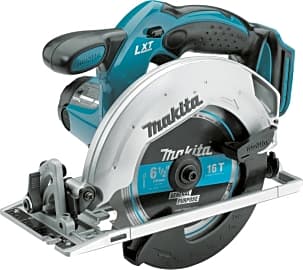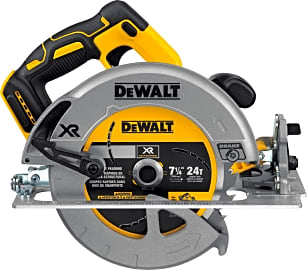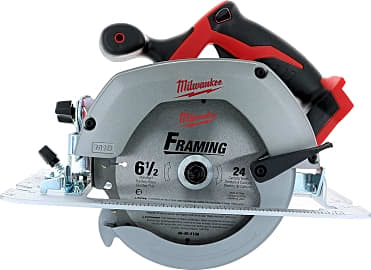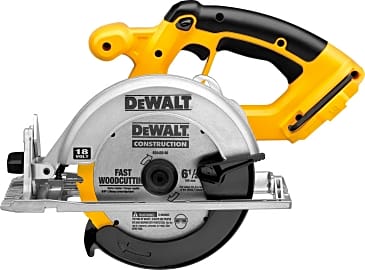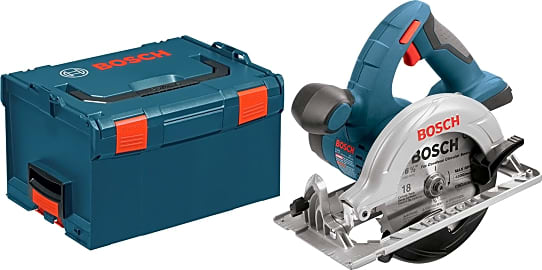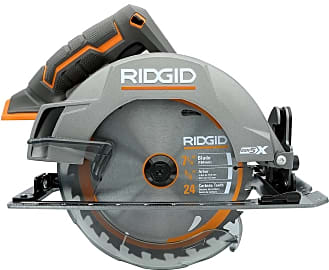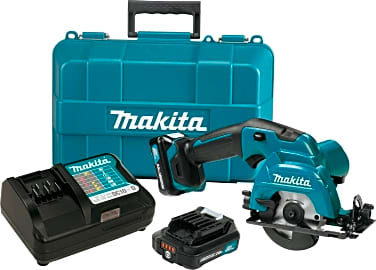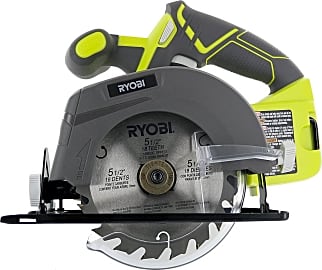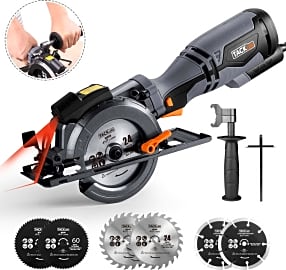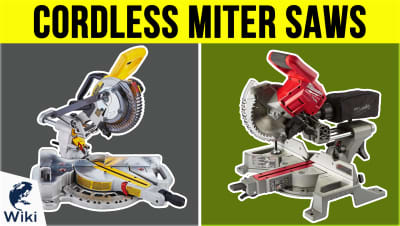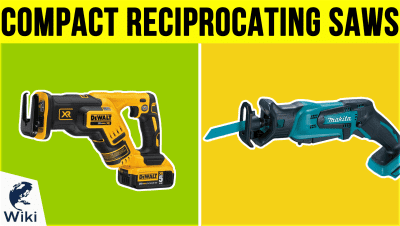The 10 Best Cordless Circular Saws

This wiki has been updated 33 times since it was first published in February of 2017. Whether you're cutting materials in a workshop or on a job site, the last thing you need is a tangled mess of wires slowing down your progress. These cordless circular saws solve that problem by packing performance that's comparable to mains-powered units into a battery-powered body, allowing a greater range of motion and the freedom to go about your business unencumbered. When users buy our independently chosen editorial picks, we may earn commissions to help fund the Wiki.
Editor's Notes
July 08, 2020:
Removed the Black + Decker BDCCS20C in favor of the Skilsaw TrueHVL. Bumped up the Milwaukee 2630-20 because it uses the very reliable M18 battery platform.
The Skilsaw TrueHVL is likely the best cordless circular saw currently available. Its corded counterpart has been ubiquitous in construction sites for a very long time and for good reason. Upon disassembly, both the corded version and the cordless TrueHVL demonstrate that they are built to last. You'll find well-cast shoes and housings, hardened steel bushings, large sealed bearings, nicely ground shafts, mitigation for lubricant-caused pressure differentials, and a large brushless motor. In terms of performance, I like the weight of it. I don't know for certain but I suspect that they've taken measures to include weight-saving components such as the magnesium housing and base plate at least partly in order to balance the tool given its relatively heavy worm drive gear arrangement. It cuts straight and reliably and the extended handle makes it very easy to control and leverage. Overall, its an excellent tool that will last for decades.
If you're looking to expand your cordless saw collection, check out some jigsaws, miter saws, and reciprocating saws.
Power tools are dangerous and should be used with caution. Saw dust can be harmful if inhaled for long periods of time and proper breathing protection should be used.
May 22, 2019:
We discovered that the list contained an outdated version of the Hitachi C18DBALP4, so we eliminated it from the list. Unfortunately, there was very little information available regarding the latest model from Hitachi, so we replaced it with a different brand. The Tacklife TCS115A is a helpful addition to the list — it’s designed with a straight, thin handle, making it a solid alternative to most of the models on the list, which are built in the standard fashion. While users seem to appreciate its fast cutting, easy maneuverability and six included blades, its laser guide feature sparks the most excitement, as it makes it simple to maintain constant accuracy.
After evaluating the DeWalt DC390B, we gave it a bump in the rankings for its lightweight design and its blend of affordability and power, all of which make it ideal for home projects. Users note how simple it is to activate the safety switch and adjust the blade depth, adding to its overall ease of use. The Milwaukee 2630-20 is a quality option, but we did find a few complaints about its battery life and a lack of certain features (such as a rafter hook and a built-in light), so we dropped it a couple spots in the rankings.
Why Go With A Cordless Circular Saw?
It’s a light-hearted excursion into some iconic territory, but beneath it lurks a more violent past.
In the area of Northeastern New Jersey where I grew up, it wasn't uncommon for us to take visitors on a Sopranos tour of sorts, visiting places like Holsten’s, Pizza Land, or the storied Satin Dolls strip club that served as the set for the show’s Bada Bing location. It’s a light-hearted excursion into some iconic territory, but beneath it lurks a more violent past.
In that part of the world, if somebody were to, say, take a cordless circular saw out of the trunk of their car, you couldn’t be sure whether they were a carpenter or a capo in a local crew. Those red flecks on the blade could be rust, or maybe paint from some restoration work, or they could be what’s left of Jimmy Hoffa.
And while this may seem a little bit on the morbid side, it serves a purpose in illustrating the utility of a good cordless circular saw: they’re incredible portable. These tools have the ability to cut through almost anything at a moment’s notice, and all they require is a battery with a little charge on it. They’re lightweight, safe and easy to pack up for transportation, and are almost universally designed for users who might not be as familiar or comfortable with them as professionals would be.
Of course, all of this is a testament to the quality of the cordless variety of circular saw, but it doesn’t speak to the use of a circular saw to begin with. Essentially a circular saw allows you to make deep, exact, guided cuts through a variety of materials, from wood to metal, They’re impressively easy to use, and can quickly make amateurs capable of producing professional-level work.
How To Choose A Cordless Circular Saw
Cordless circular saws may not offer a ton of aesthetic variety to the consumer, but you may be surprised at the amount of subtle differences from one model to the next. Keeping an eye out for certain features or specifications that appeal to you can make the selection process that much easier.
For starters, all of these machines run on rechargeable batteries that are specific to the company that manufactures them. Many of those batteries are actually designed to fit within a larger system of power cells intended for variety of tools within a company’s lineup. That means that, if you buy a saw by Milwaukee, for example, the battery it comes with may be compatible with a whole host of other cordless power tools by Milwaukee. If you already have a few tools within a single company’s system, it’s a good idea to stick with that brand, especially if you like what you already own.
Cordless circular saws may not offer a ton of aesthetic variety to the consumer, but you may be surprised at the amount of subtle differences from one model to the next.
Keep an eye out for specific details when it comes to batteries, though. Because many of these tools operate within a system, a lot of manufacturers sell them without any batteries. If you’ve already got a bunch of batteries from other tools in your collection, this might actually be a great way to save some money, but if you’re just starting out, or your other tools use different batteries, you could have a brand new saw arrive at your house that you can't even turn on.
Different saws run different blade sizes, as well. If you have a job that requires you to reach a certain depth or cut through materials of a certain strength, you may need a bigger, more powerful saw and blade combination than some have to offer. The 6-½ inch saw is a great place to start for many budding DIY carpenters, but smaller options may be easier to wield. If you find yourself at all intimidated by the category, it might be wise to start with something smaller, especially if your jobs aren’t all that demanding.
Obviously, things like rotations per minute and purported battery life should be taken into account. If your jobs are smaller, but require more power, you can opt for less battery life and more oomph. If the opposite is true, then you can get your work done with less force and enjoy not having to charge the battery as often.
Beyond those considerations are slighter features like the comfort and shape of the grips, the responsiveness of the power trigger, and things like integrated LED lights to increase the visibility of your cutting area. None of these are necessarily deal breakers, but they could help tip the scales if you’re having a hard time deciding.
Safety Tips When Using A Cordless Circular Saw
There are a lot of ways in which manufacturers make their power tools exceedingly safe for the average person to use. Still, the Consumer Products Safety Commission reports that more than 400,000 people are hurt by a power tool each year, and that over 200 of those injuries lead to death. How many of those injuries and deaths occurred in the New Jersey Meadowlands the commission failed to say, but it stands to reason that there are many inherent dangers in the worlds of power tools and organized crime.
When using a cordless circular saw, you’ll want to make sure that you’re working in a well-lit area, and that there are no arc light on site. You’ll never see these in a workshop, as their natural flicker can trick the human eye into thinking that a moving blade is not, in fact, moving, but since these are such portable tools, it might not be easy for you to know in advance what your lighting will be like. If you think you might encounter an arc light in your travels, it’d be a good idea to invest in some kind of portable work light, as well.
Keep in mind that these tools can kick up a lot of debris. Always wear safety goggles and a mask or respirator while working to protect your eyes and your lungs. And if you’re worried about the potential for an accidental cut across your hand, try investing in some cut-proof gloves. They won’t stop the blade outright, but they could save a finger.


